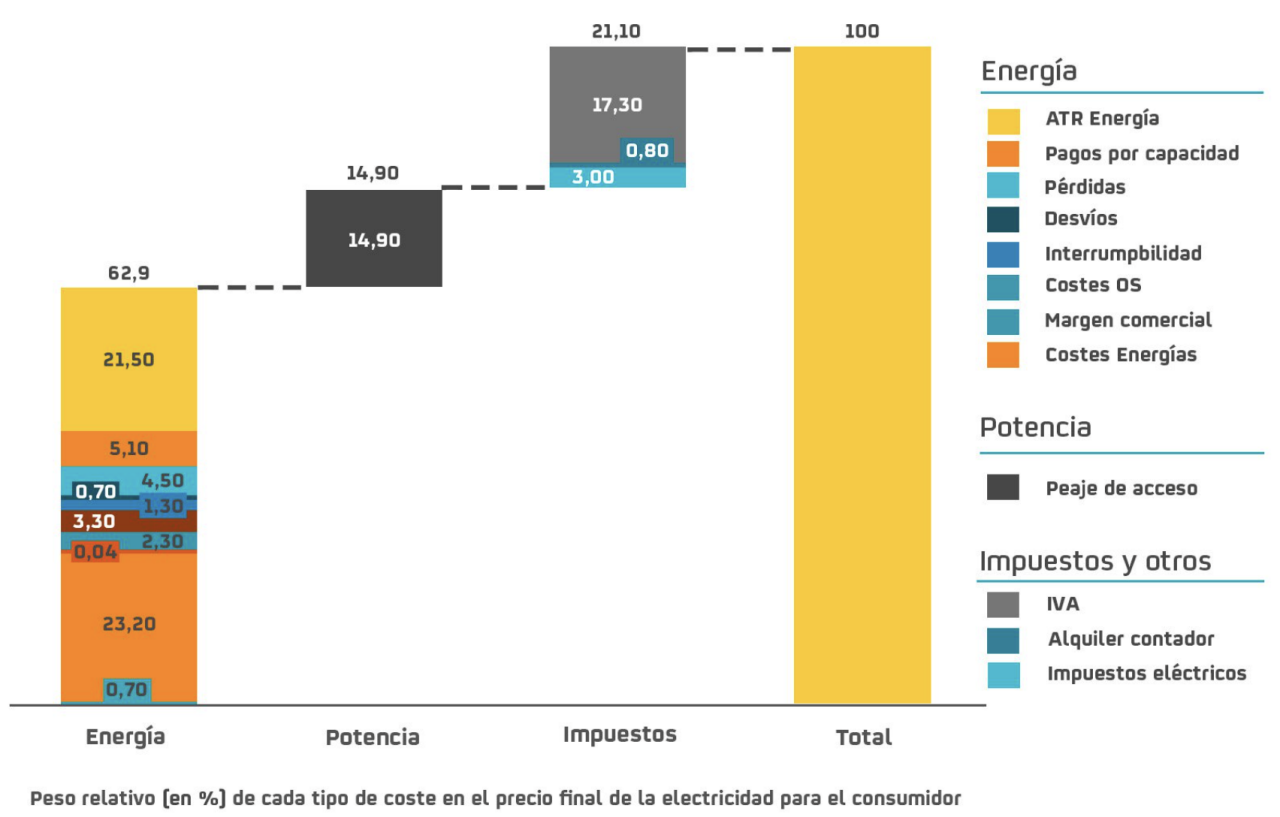Authors: Gonzalo Canales, Pricing Strategy Manager at Repsol and Javier Panizo, Sr. Manager in Energy Purchasing Strategy at Repsol.
In today's complex energy landscape, the price of electricity is shaped by various factors such as fluctuations between supply and demand, production costs and the crucial role of retailers, which act as intermediaries between producers and consumers. In this article, we will analyse which aspects have a direct impact on the cost of electricity and what is the strategic role of traders in this process. In addition, we will examine specific measures that can be taken to promote the affordability of electricity, ensuring a fair balance between the sustainability of the sector and the consumer's pocket.
The performance of the electricity pool, the choice of market type or the right tariff are some of the most important factors that will influence the final price of a bill.
The functioning of the electricity market is a complex process that involves various stages and actors in the flow of generation, distribution and commercialisation of electricity. It is a dynamic environment with many fluctuations, where supply and demand play a crucial role in determining prices.
Why is it important to know the price of electricity?
Changes in the price of electricity can have an effect on household consumption, and also on investment, as companies may be forced to postpone investment decisions due to higher production costs.
In other words, electricity prices can have a direct effect on economic activity.
If you want to know how the electricity price is constructed, you can read about it in the attached article.

Access My Open Room.
To access the content you must first register.



.jpg)
